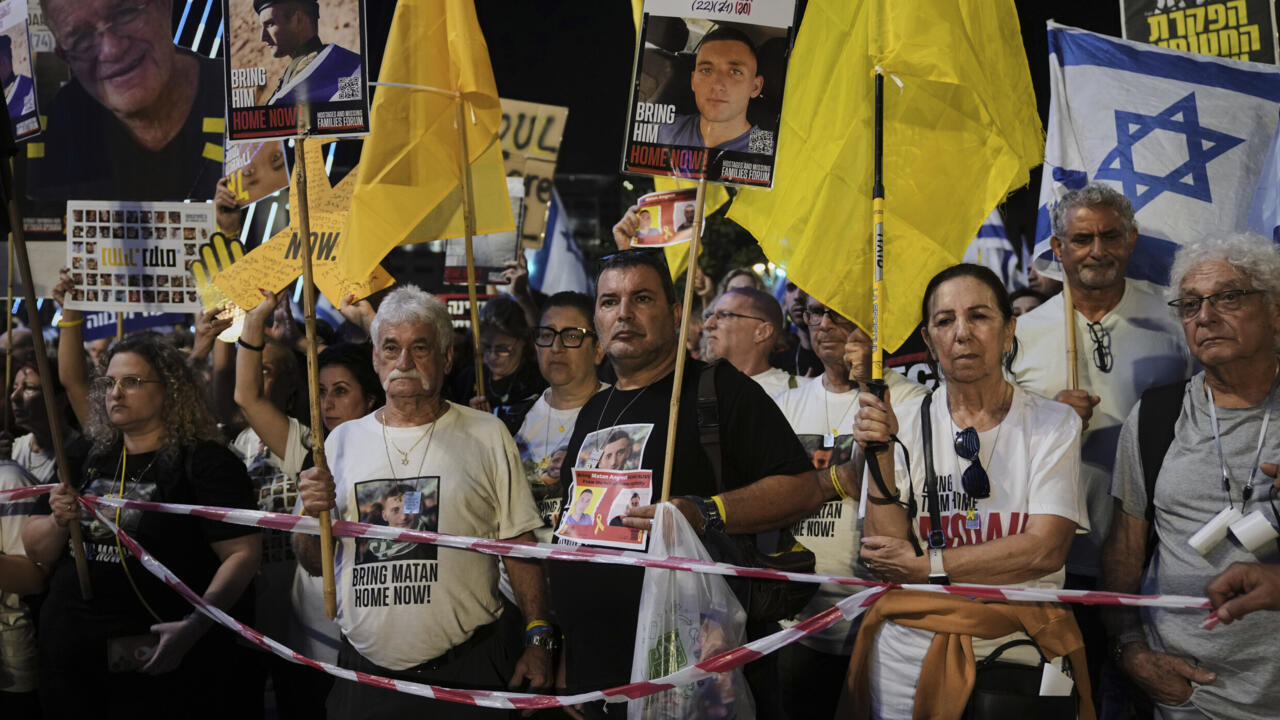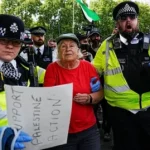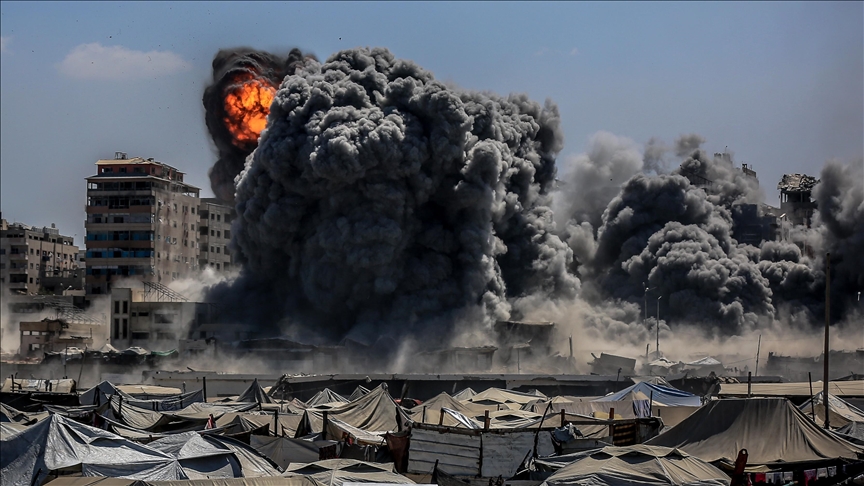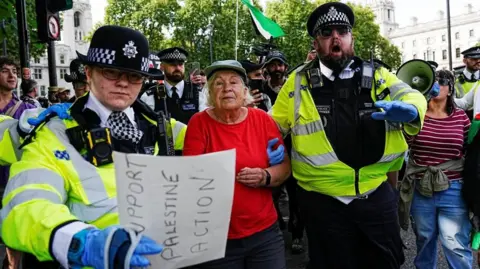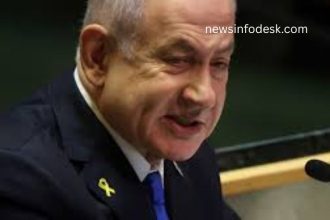Jerusalem became the stage of one of the largest demonstrations in recent months as thousands of Israelis took to the streets demanding Prime Minister Benjamin Netanyahu act decisively to secure the release of hostages held in Gaza. The atmosphere was electric yet somber, filled with families of captives, activists, opposition figures, and ordinary citizens who carried banners and candles while chanting slogans calling for government accountability.
- The Rising Tension Over Hostages in Gaza
- The Rally in Jerusalem: A Nation’s Cry for Action
- The Families at the Forefront of the Struggle
- Netanyahu’s Balancing Act
- The Political Ramifications of the Hostage Crisis
- The International Dimension
- Public Sentiment and Collective Trauma
- The Role of Media and Civil Society
- What Lies Ahead for the Hostages and Israel
- FAQs
- Why are so many Israelis protesting in Jerusalem?
- How many hostages are currently held in Gaza?
- What challenges does Netanyahu face in the negotiations?
- Have there been successful hostage negotiations in Israel before?
- What role does the international community play?
- Could the protests impact Netanyahu’s political future?
- Conclusion
This mass gathering reflects the mounting frustration and desperation that has gripped the nation as negotiations to free the hostages remain stalled. The rally was not just a political event but a deeply emotional expression of collective grief and unity in the face of uncertainty, amplifying a growing rift between citizens and the government.
The Rising Tension Over Hostages in Gaza
The hostage crisis has become one of the most sensitive and politically charged issues in Israel. Dozens of Israeli civilians and soldiers remain in captivity, many of them taken during violent cross-border attacks that shook the country. Families of the hostages have long accused the government of dragging its feet, prioritizing military operations over humanitarian considerations.
While officials in Netanyahu’s government argue that negotiations with Hamas and other groups require delicate handling to avoid emboldening militants, critics believe the lack of urgency reveals a dangerous disconnect between the ruling leadership and the people they serve. The hostages symbolize both vulnerability and resilience, and their continued captivity has become a painful reminder of the human cost of prolonged conflict.
The Rally in Jerusalem: A Nation’s Cry for Action
The streets near the Prime Minister’s Office and central Jerusalem were flooded with demonstrators carrying signs reading “Bring Them Home Now” and “Every Day Matters.” Emotional speeches from relatives of hostages brought many to tears, as parents, siblings, and children pleaded directly to Netanyahu, urging him to remember that behind political calculations are real lives at stake.
Eyewitnesses described the rally as one of the largest seen in recent years, a testament to the growing impatience of the public. Organizers estimated attendance in the tens of thousands, with participation cutting across political, religious, and social lines. This was not merely an opposition protest but a national outcry for humanity and responsibility.
The Families at the Forefront of the Struggle
The most powerful voices at the demonstration came from the families themselves. Many of them have camped outside government offices for months, hoping to keep public attention on their loved ones. At the rally, mothers clutched photos of their children, while fathers raised their voices in frustration and pain.
One father was quoted as saying, “My son has been in captivity for too long. Every night we sleep not knowing if he is alive. How can the government not make his life a priority?” Such testimonies remind the broader society of the personal devastation behind the statistics.
Family-led movements have played a critical role in shaping public opinion in Israel’s history. From the campaign to free Gilad Shalit to earlier prisoner exchanges, the pressure from relatives has often swayed public discourse and political decisions. The current wave of activism appears no different, except that the scale and emotional intensity are amplified by the collective trauma of ongoing conflict.
Netanyahu’s Balancing Act
Prime Minister Benjamin Netanyahu is no stranger to political storms, but the hostage crisis represents one of his toughest challenges yet. On the one hand, he faces unrelenting pressure from families and protesters demanding swift action. On the other, he must consider the risks of negotiating with groups like Hamas, where concessions may be viewed as rewarding aggression.
Netanyahu’s government insists that military and diplomatic strategies are being pursued in tandem, but the lack of visible progress fuels public skepticism. His critics argue that the Prime Minister is prioritizing political survival and international optics over the immediate needs of citizens. Supporters, however, claim that patience is required, warning that rushing into a deal could undermine national security.
The Political Ramifications of the Hostage Crisis
The protests in Jerusalem are not only about securing hostages but also about the future of Netanyahu’s leadership. His approval ratings have taken a significant hit, with recent polls suggesting that a majority of Israelis doubt his handling of the crisis. Opposition leaders seized the moment to call for greater transparency and even hinted at the possibility of new elections if Netanyahu fails to deliver results.
Analysts note that public pressure over hostage negotiations has historically reshaped Israel’s political landscape. The Gilad Shalit deal in 2011, for instance, forced policymakers into a difficult exchange that brought heated debates but ultimately swayed public sentiment. Netanyahu is now navigating a similar moment, but the stakes appear even higher given the scale of the protests and the mounting frustration across Israeli society.
The International Dimension
The hostage issue is not confined to Israel’s borders. Foreign governments, humanitarian organizations, and international mediators have all expressed concern. The United States, Egypt, and Qatar have been particularly active in attempting to broker agreements between Israel and Hamas. However, geopolitical rivalries and mistrust have slowed progress.
International human rights organizations have urged Israel to prioritize humanitarian considerations while also calling on militant groups to respect international law and release civilians. Meanwhile, global media coverage of the protests in Jerusalem has placed Netanyahu under heightened scrutiny, with many questioning whether his government is doing enough.
Public Sentiment and Collective Trauma
The hostage crisis has penetrated every aspect of Israeli daily life. Families live with the constant fear of receiving devastating news. Communities organize vigils, fundraisers, and solidarity events. Social media campaigns keep the issue alive, turning hostages’ names into household symbols of resilience.
Experts on trauma warn that prolonged uncertainty can lead to long-term psychological effects on both families and society at large. The rally in Jerusalem reflected not just political anger but also a nation’s attempt to heal through collective action. By standing together, protesters found strength in unity, even as they expressed despair.
The Role of Media and Civil Society
Israeli media outlets have given extensive coverage to the hostage issue, dedicating prime-time segments to interviews with families and analyses of government policies. Civil society organizations have amplified these voices, organizing marches, awareness campaigns, and legal petitions aimed at compelling the government to act more urgently.
The media’s framing of the issue has intensified pressure on Netanyahu, making it harder for his administration to avoid addressing the crisis head-on. Every televised speech by a grieving parent or expert analysis of negotiation delays increases the political cost of inaction.
What Lies Ahead for the Hostages and Israel
The path forward remains uncertain. Negotiations are ongoing, but both sides accuse the other of stalling or making unreasonable demands. The Jerusalem rally has increased momentum for change, but whether it will force Netanyahu to alter his strategy remains unclear.
What is clear, however, is that the hostage issue has moved beyond politics to become a defining moment for Israel’s society and leadership. The protesters’ message is unmistakable: lives are at stake, and the time for decisive action has come.
FAQs
Why are so many Israelis protesting in Jerusalem?
The protests are driven by frustration over the government’s handling of hostages held in Gaza. Families of captives, joined by thousands of supporters, want Prime Minister Netanyahu to prioritize negotiations and secure their release.
How many hostages are currently held in Gaza?
Exact numbers are difficult to verify due to limited communication and conflicting reports. However, Israeli officials and families believe dozens remain in captivity, including civilians and soldiers.
What challenges does Netanyahu face in the negotiations?
Netanyahu must balance domestic pressure with the risks of negotiating with militant groups. Concessions could encourage further attacks, while delays fuel public anger and erode his political standing.
Have there been successful hostage negotiations in Israel before?
Yes, Israel has a history of prisoner exchanges and negotiations, including the high-profile release of Gilad Shalit in 2011. These precedents show that while difficult, deals can be reached under intense public pressure.
What role does the international community play?
Countries like the United States, Egypt, and Qatar act as mediators in ongoing talks. Human rights groups also push for humanitarian considerations, urging both sides to prioritize the safety of civilians.
Could the protests impact Netanyahu’s political future?
Yes, the protests have already weakened Netanyahu’s approval ratings. If no progress is made soon, pressure from both the public and opposition parties could reshape the political landscape, possibly even leading to elections.
Conclusion
The rally in Jerusalem was more than a protest; it was a national plea for humanity, unity, and decisive leadership. Families of hostages, supported by thousands of citizens, turned their grief into a powerful call to action.
Their message was directed at Prime Minister Netanyahu but resonated far beyond Israel’s borders, reminding the world of the human cost of political stalemates. As negotiations drag on, the pressure on Israel’s leadership will only intensify, and the hostages’ fate will remain a defining test of the nation’s resolve.

